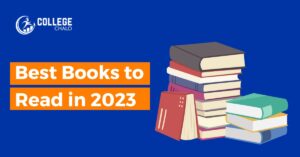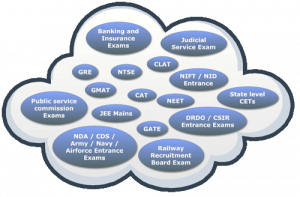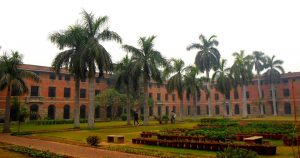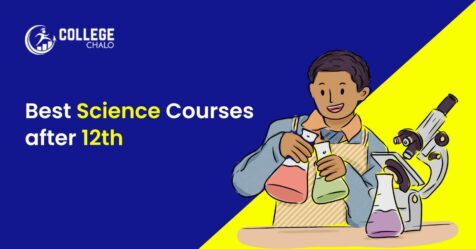Best Books to Read in 2023
Best Books to Read in 2023 Are you a bookworm or a bibliophile, if yes, then this is the ...
Canadian Universities Ease Master’s Admission for Indian Students
Graduates hoping to continue their Master’s degree in Canada now have a big advantage since Canadian colleges and universities have loosened their 16-year education threshold for postgraduate admittance. For Indian students especially, who often finish their undergraduate studies in three years, this trend is very helpful. This article goes into great detail on the advantages to Indian graduates and why this matters. Read more, Study Abroad GREAT Scholarships: 71 UK Universities Offering 210 Postgraduate

In the past, postgraduate programs in Canadian universities and colleges required applicants to have completed at least 16 years of school. Normally, this required a four-year undergraduate degree. But in India, a three-year program culminates with the awarding of a regular bachelor’s degree. Indian students hence often finish only 15 years of school (10+2+3) before earning their degree.
This disparity meant that Indian students hoping to study in Canada would have to either finish a second year-long course in India or work toward a second Bachelor’s degree in Canada in order to fulfil the 16-year educational requirement. With this restriction being waived, Indian undergraduates with a three-year degree may apply straight to Master’s degrees in Canada.

Experts point out that recent modifications in laws pertaining to overseas students have forced Canadian universities to expand their admittance standards. These days, many universities take postgraduate students with 15 years of experience.
“There are now colleges and universities in almost every province/territory that have opened doors for graduates from India to enrol in Master’s courses by introducing short-term foundation or preparatory programs,” said Gurpreet Singh, a study-in-Canada consultant. This evolving trend includes institutions like the University of Niagara Falls, University of Canada West, Trinity Western University, City University Alberta, Providence University in Winnipeg, and Catholic University Theological Seminary, among others.
The relaxation of this requirement brings several advantages for Indian students:

For universities, this change is advantageous because:
| Aspect | Previous Requirement | Current Requirement |
|---|---|---|
| Years of Education Needed | 16 years (Four-year undergraduate degree) | 15 years (Three-year undergraduate degree) |
| Additional Study Requirement | Additional year in India or second degree in Canada | No additional study needed in India or Canada |
| Foundation Courses | Not typically offered | 3-6 months foundation courses available |
| Direct Admission for Business Backgrounds | Not available | Direct admission available |
| English Proficiency | Required | Still required |
| Spousal Work Permits | Limited to certain Bachelor’s programs | Available for Master’s students |
| Work Permit Eligibility | After Bachelor’s program | After one year of Master’s program |
| Permanent Residency Points | Lower points for undergraduates | Higher points for Master’s graduates |
| Provincial Caps on Students | Applies to all students | Exempt for postgraduate students |
The relaxation of the 16-year education requirement for Master’s admission by Canadian universities is a groundbreaking development for Indian students. It provides a more straightforward pathway to advanced education in Canada, offering numerous academic and professional benefits. This change not only facilitates smoother transitions for students but also enriches the academic landscape of Canadian institutions by attracting a diverse and talented pool of international graduates.
Also, read
Study Abroad on a Budget! 10 Scholarships Powering Indian Students Global Education
Study Abroad Guide for Indian Students After 12th Grade
Meet Tanu Bhatnagar, an educational expert with extensive experience in teaching, research and mentoring.With a decade in... (Full bio)

Best Books to Read in 2023 Are you a bookworm or a bibliophile, if yes, then this is the ...

In the exhilarating journey of 10 Proven Memorize Techniques for Students learning, memory is your trusty companion. Whether ...

Top 20 toughest exams in world is about exams in the world that required very hard work to ...

Top 20 toughest exams in India - Exams are the perhaps most toughest moments for any student. A ...

Top 20 Colleges of DU Getting admissions to the top 20 colleges of DU is a dream for every ...

Top 20 NITs of India - Amongst the 31 NITs in India, today, we are talking ...

Here are the Top 12 Artificial Intelligence in Mumbai. Artificial intelligence (AI) refers to the simulation of human ...

As you stand on the Best Science Courses after 12th academic journey, the realm of science beckons, offering ...
Millions of students have entrusted CollegeChalo to facilitate their seamless and smooth admission process to their dream colleges and universities. With CollegeChalo, you can gain a competitive edge by easily accessing exam and course details to stay ahead of the admission journey. What are you waiting for?
Search your dream college